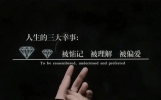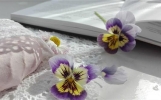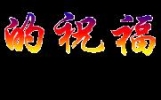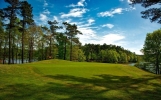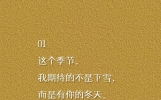外研版新标准英语八上M4U2的主要内容是一位旅行者在论坛中发帖子,征求从伦敦到阿姆斯特丹的旅行建议。本课可以培养学生通过网络获取信息的能力和意识。同时,通过乘坐不同的交通方式的对比学习,提高学生的判断和辨别能力,并在语言学习上进一步理解形容词副词及其比较级、最高级的应用。
U2重点句子
3.Could you please tell me about the trains or ships to get there?请你告诉我去那里的火车或轮船情况好吗?(1)Could you please do sth.?请你做......好吗?(2)tell sb.about sth.告诉某人关于某事(3)get there到那里get to+地点,如果地点是副词,to省略。
get there/here/home
4.The more information, the better.信息越多越好。the +比较级,the+比较级,表示越......就越......The more you go jogging, the healthier you will feel.
5.A journey by train is more relaxing than by coach, but a lot more expensive. 乘火车旅行比乘长途汽车更令人放松,但是也会贵很多。
a lot more expensive贵很多,比较级前可以用a lot,much,a little, a bit,even,still,far等修饰。
6.Remember that parking in Amsterdam is very expensive,so stay outside the city center and travel in by bus or by train.记住在阿姆斯特丹停车是很贵的,所以最好住在市中心外,坐公交车或火车进入市中心旅行。
(1)parking停车,动名词作主语。
Swimming is his favourite sport.(2)stay outside the city center住在市中心外(3)by bus/train 坐公交车/火车
7.In summer, the coaches sometimes get crowded.在夏天,长途汽车有时变得拥挤。
(1)in summer在夏天(2)get crowded 变得拥挤,get变得,系动词,后面加形容词。
The days are getting warmer and warmer.
8.And it takes you about twelve hours to get there.大概需要你花费12个小时到那儿。
take花费It takes/took/will take sb.时间to do sth.花费某人多长时间去做某事It took them five days to read this book.
9.However,it will not cost as much as going by train.然而,它不像坐火车花费那么多。(1)however然而,后面要有逗号隔开(2)cost 花费,动词。物cost人钱The book costs me 50 yuan.
10....but you may have to wait for hours at the airport because of bad weather. ......但是你可能会因为糟糕的天气在飞机场等几个小时!(1)have to do sth.不得不做某事(2)wait for hours等数小时(3)at the airport 在飞机场(4)because of由于;因为,后面接词或短语
11.I hope this helps! Have a great trip!我希望这能够帮助你!祝你旅行愉快!(1)hope to do sth./+句子,希望做某事/希望......(2)have a great/good/nice trip旅途愉快
U3重点句子
1.The cheapest way to get there is by coach. 到达那里最便宜的方式是乘长途汽车。
(1)此处to get there 为动词不定式(短语)作后置定语,修饰前面的名词way。
动词不定式(短语)作定语时,位于被修饰词之后。
如,I have a lot of things to do. 我有许多事情要做。
(2) by coach 乘长途汽车 by+表示交通工具的名词, 交通工具前不加冠词或其他限定词。
2. I’m in a hurry. 我很着急。
in a hurry 意为“匆忙,仓促”,既可以作表语也可以作状语。
此处 hurry 用作名词,意为“匆忙”。
They left in a hurry. 他们匆忙离开了。
hurry 还可作动词, 意为“匆忙” hurry to do sth.匆忙做某事。
如,He hurried to go to school this morning. 今天早上他匆匆忙忙去上学了。
3.My family is planning a journey to China in the summer.我家正计划夏天去中国旅游。
a journey to+地点 一次去…的旅行 He bought some presents on a journey to Beijing. 在去北京的旅行中他买了一些礼物。
4.After Beijing, we want to visit Xi’an and Hangzhou, and maybe somewhere else. 游览完北京后,我们想游览西安和杭州,也许其他的什么地方。
(1)want to do 想要做......如, I want to go there by bus. 我想要乘公共汽车去那儿。
(2)else作形容词,意为“别的,其他的” 常常用来做后置定语,放在疑问代词who, what或 something, someone, anyone等不定代词之后。
Is there anything else in your bag? 你的包里还有别的什么东西吗?else作副词,意为“其他,另外”通常放在疑问副词when,where等的后面。
Where else do you want to go? 你想去别的什么地方吗?
5.The cost is not so important, but the time is.费用不是那么重要,但时间重要。
cost 此处用作名词,意为“费用”。
cost还可以用作动词,表示“花费”,指花费金钱,主语通常是物sth. cost(s)(sb.) some money 如,The skirt cost me 30 yuan. 这条裙子花了我30元钱。
6.Is it better to go to Shanghai first? 先去上海更好吗?be better to do sth. 做… 更好 It’s better to go home now.现在回家更好。
had better do 最好做…...如, You had better stay in bed.你最好卧床休息。
7.Can we make a short trip to Suzhou? 我们能进行一次短暂的苏州之旅吗?make a trip to 去…旅行 We are planning to make a trip to London. 我们正计划去伦敦旅游。
8.You can go from Moscow, the capital of Russia, to Vladivostok on the east coast.你可以从俄罗斯首都莫斯科去东海岸的符拉迪沃斯托克。
(1)the capital of …的首都 the不可省略 Beijing is the capital of China. 北京是中国的首都。
(2)on the east coast 在东海岸上 此处注意介词要用on



